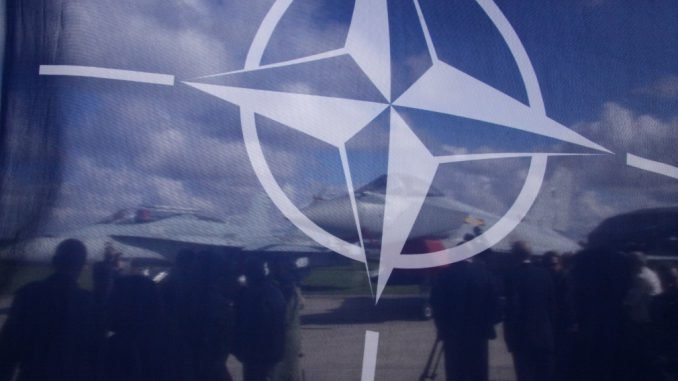
It is highly likely that the rocket that exploded in Poland near the Ukrainian border and killed two people was fired by the Ukrainian armed forces to shoot down one of the Russian missiles. The Russians fired a torrential rain of missiles at Ukrainian infrastructure just on Tuesday, leaving many residents without electricity, water or heating, Eglė Samoškaitė writing on tv3.lt news portal.
Vytautas Jonas Žukas, a former commander of the Lithuanian Armed Forces, says that incidents like the one in Poland were to be expected. Still, since NATO’s position is not to escalate the conflict, and the incident was probably unintentional, a significant reaction is not likely.
“As I understand from the information provided, a NATO reconnaissance aircraft in Poland recorded the missile launch options. Debris from a Soviet-built missile was found on Polish territory, and it will now be investigated whether it is an anti-aircraft missile or a cruise missile. Everything will become clear in the near future. For the moment, there are two versions: it could have been a Ukrainian missile that landed on Polish territory, but the theory that it could have been a Russian missile has not been completely ruled out either. But we can say that it was not a targeted attack against Poland,” said Žukas.
Asked whether the Polish air defence could have reacted more proactively, the former army chief noted that the distance to the Ukrainian border is very short, so it could have been challenging to respond, and NATO reconnaissance aircraft do not have the anti-missile or anti-aircraft capability.
Rzhev, where the missile struck, is approximately 8-10 kilometres from the Ukrainian border.
“If it is a Ukrainian anti-aircraft missile that was launched after a Russian missile, there is not much to predict. But if it was aimed at the city of Lviv, and this is the deflection, the reaction time is concise. So to anticipate and shoot down such a missile with Polish anti-aircraft capabilities when you do not know that you are under attack, I think it could have been quite difficult,” he reflected.
“Now the air defence on Polish territory will probably be strengthened. In any case, the cruise missiles that Russia allows are very inaccurate. They are Soviet-era, and the deviations from the target are quite large. If you attack a city that is on the outskirts of Poland, as in the case of Lviv, such incidents are possible in the future. I believe Poland will learn its lessons and strengthen its air defences and air patrols. They will learn this lesson”, says Mr Žukas.
Poland has already activated Article 4 of the NATO treaty, which provides for consultations with Alliance partners.
Is it possible to get Russia to avoid attacking targets in Ukraine that are too close to the borders of NATO countries because there may be more incidents in the future?
“This has been talked about since the beginning of the military conflict. It has been said: give anti-aircraft weapons, give more weapons. But you look at what the Secretary-Ge.neral of NATO and the other countries are saying: that under no circumstances should the conflict be allowed to escalate, and under no circumstances should NATO get involved in the conflict. From day one. After all, Ukraine has asked for an anti-aircraft shield, aircraft and modern anti-aircraft missiles. They have asked for everything. And nothing was provided. That is the NATO position. If the incidents recur, then conclusions must be drawn. Then, according to Article 4, let them think about what to do, let them reinforce the air defences on the approaches to Ukraine, or let them give Ukraine an air defence shield, let them give it planes, let them give it modern anti-aircraft missiles. Maybe this incident will lead to some decisions”, V.J. said. Žukas.
The former army chief also recalled that this is not exactly the first incident, as, in 2014, a Malaysia Airlines civilian aircraft with passengers was shot down by Russian-backed separatists. Still, from a time perspective, nothing special happened. That is to say, there was an investigation, and it was found out precisely what happened, but there was no punishment for Russia or the separatists.
According to V.J. Žukas, he does not expect an extraordinary reaction from NATO countries unless such incidents tend to recur in NATO member countries. “NATO’s position since day one of this conflict has been: no involvement”, says the former army chief.
Janeliūnas: NATO countries see no threat to the West
Tomas Janeliūnas, professor at Vilnius University’s Institute of International Relations and Political Science, argues that NATO will certainly not react to the incident in Poland militarily but rather politically and rhetorically. At best, Ukraine might be more actively supported with arms or other means again, and Kyiv might try to use this situation to wake up the Alliance members.
Ukrainian President Volodymyr Zelensky stressed on November 15 evening that Kyiv had warned the West that Russia would not stop at Ukraine. However, at the time, it was still thought that it might have been a Russian missile, whereas it now appears that the incident was linked to an attempt by Ukrainians to protect their infrastructure from Russian attacks. And while this does not remove Russian responsibility, it does make the picture more complex.


Be the first to comment